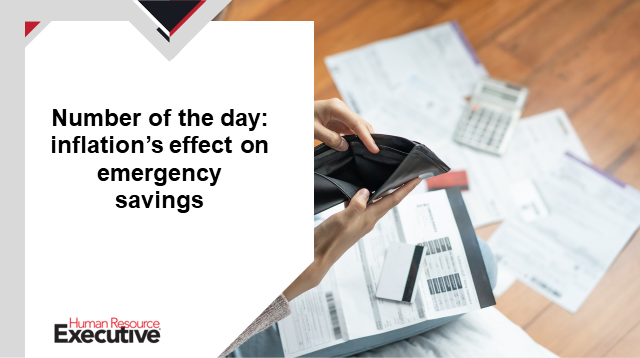The effect of soaring inflation continues to make an impact—but this time, it’s good news for employees.
The IRS announced a record increase in contribution limits to 401(k) and other retirement accounts—mostly in response to soaring inflation. Starting in 2023, employees can contribute up to $22,500 into their 401(k), 403(b), most 457 plans or the Thrift Savings Plan for federal employees. That’s a $2,000 jump from the 2022 limits.
Additionally, the catch-up contribution limit for employees age 50 and older who participate in 401(k), 403(b), most 457 plans, and the federal government’s Thrift Savings Plan is increasing to $7,500 in 2023, up from $6,500 in 2022. That means those participants can contribute up to $30,000, starting in 2023.
The limit on annual contributions to an IRA increased to $6,500, up from $6,000. The IRA catch‑up contribution limit for individuals age 50 and over is not subject to an annual cost‑of‑living adjustment and remains $1,000, the IRS said.
See also: Number of the day: 2023 HSA contribution limit
The retirement contributions jump is good news for employees, notably those who are falling short of their retirement goals, which is a large number of workers. Research indicates that retirement optimism has fallen, with many employees feeling unprepared for their long-term future. Recent data from the nonprofit Transamerica Center for Retirement Studies in collaboration with Transamerica Institute finds that about half of baby boomers and nearly four in 10 Gen X workers expect to work, or already are working, past age 70 or do not plan to retire.
See also: Employees dipping into their 401(k)s? Baked goods maker offers an alternative
 Inflation is making matters worse: Increasing cost-of-living is now the top obstacle to saving for a comfortable retirement, according to a recent survey from Schwab Retirement Plan Service. The financial services firm’s annual nationwide survey of 401(k) plan participants finds that workers rank inflation (45%) ahead of other obstacles, including keeping up with monthly expenses (35%), stock market volatility (33%) and unexpected expenses (33%).
Inflation is making matters worse: Increasing cost-of-living is now the top obstacle to saving for a comfortable retirement, according to a recent survey from Schwab Retirement Plan Service. The financial services firm’s annual nationwide survey of 401(k) plan participants finds that workers rank inflation (45%) ahead of other obstacles, including keeping up with monthly expenses (35%), stock market volatility (33%) and unexpected expenses (33%).
Although the recently announced IRS increase is positive news that can help pad savings, perhaps the bigger issue is that employees haven’t been able to sock away more of their earnings as inflation has taken a significant toll on many workers’ budgets. As prices for housing, food, gas, medical costs and other bills have largely increased over the past year, salaries haven’t increased in the same way, causing employees to cut back on contributions to things like retirement and health savings accounts. Schwab data finds that 79% of workers say they are changing their saving and spending habits, while 44% have altered their 401(k) investments.
That presents an opportunity for employers, who can help by evaluating salaries, increasing contributions for their employees’ retirement accounts, expanding financial resources and benefits, and beefing up communication about retirement strategies. Experts say employers should encourage employees to fund their 401(k)s to the best of their ability, and the recently announced IRS retirement limits are a good opportunity to do so.
The 401(k) limits weren’t the only recent IRS announcement: The agency also increased flexible spending account limits for 2023 at a higher-than-usual jump. Employees will be able to contribute $3,050 to FSAs in 2023, the agency said.
Find out more about retirement and financial wellness strategies at HRE’s 2023 Health & Benefits Leadership Conference, which will be held from May 3-5 in Las Vegas. Learn more and register here.

